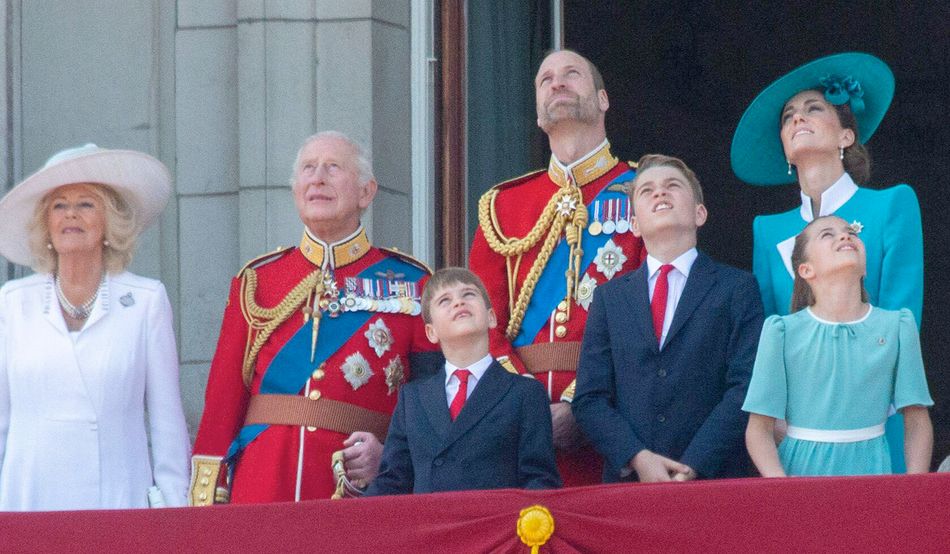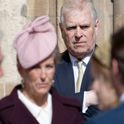It is, it transpires, the Great Unmentionable. Parliamentarians will discuss war and peace as easily as urban chalk streams, endangered bats, driven grouse shooting or neon signage. But there’s one thing you won’t catch them mentioning: the royal family.
MPs will fulminate about sewage in the waterways or the case for carpeting reservoirs with floating solar panels. But the merest hint that anyone might question how much money gushes into the Windsors’ pockets, or the Duke of York’s unfortunate taste in friends, and suddenly the chamber goes tight-lipped, like a Victorian matron at the mention of syphilis.
I was reminded of this curious state of affairs after writing about Andrew Lownie’s recent devastating book that details Prince Andrew’s long and unappetising career blurring his public and private roles to his financial and sexual advantage.
Since then, the revelations about Andrew have kept coming, not least that he continued his association with convicted paedophile Jeffrey Epstein long after he had insisted in his now infamous Newsnight interview that all contact had ceased. There are now calls for parliament to intervene to formally strip him of the titles he has so far only agreed to no longer use.
Someone on social media questioned why this behaviour had never been debated in parliament. Up popped someone else with the relevant passage from Erskine May explaining the convention that it was not really the done thing to discuss the royal family in the Commons.
Erskine May, the parliamentary “bible” that passes for the nearest thing we have to a written constitution, states: “The conduct of the Sovereign, the Heir to the Throne, and other members of the Royal Family must not be debated except where it is part of a substantive motion.”
The monarchy is, in other words, treated as if it were a piece of delicate porcelain that might shatter under the weight of parliamentary scrutiny.
Thus, we have a modern(ish) democracy in which the elected representatives of the people cannot properly interrogate how the unelected head of state and his extended family are funded, what they do, or with whom they associate. Unless there is a substantive motion, and it’s difficult to think of the last time an MP tabled such a thing.
This is odd, given that support for abolishing the monarchy altogether has persistently hovered around 24 per cent. Which, funnily enough, is around the current level of support for Reform. Or the same number as would back Welsh independence or scrap Trident. Minority causes, but only one of them is considered undebatable in parliament.
Why the coyness? Supporters of the convention argue that it protects the monarchy from political controversy and avoids dragging members of the royal family into day-to-day partisan disputes. And that, poor things, they can’t answer back.
But why should the monarchy be shielded from political controversy? If it’s such a delicate flower, then go the whole hog and ban tabloid newspapers from criticising the royals. Only that would be censorship, no? But why is clipping the wings of MPs any more acceptable?
They can’t answer back? It seems to me that the royal family has become rather assertive—if opaque—in answering criticism. Among them, they employ numerous communications advisers (precise number unknown) to ensure the best possible coverage and to neutralise the worst.
The royals have occasionally resorted to law to protect their reputations—the Queen twice sued the Sun over copyright, and Prince Harry has shown how it’s really done. There’s certainly nothing to stop them from doing so. Prince Andrew apart, the royals generally avoid submitting themselves to questioning by journalists—but, again, there’s no reason not to, except that they may not be very good at it.
If members of parliament got into the habit of asking searching questions about the monarchy, you can be sure that ranks of their servile colleagues would leap to their feet to rally round.
Here, off the top of my head, are 12 areas MPs might usefully discuss:
1) What are the terms on which Andrew continues to live in Royal Lodge, with its 30 rooms, 40 hectares and six cottages for live-in staff?
2) Should Andrew be stripped of his dukedom and other titles?
3) All the other the dodgy stuff around Pitch@Palace, Chinese spies and Epstein. Where to begin?
4) Is it reasonable that the King—in addition to the payment for the job—should pocket nearly £30m a year from the Duchy of Lancaster? Otherwise known as his subjects, or even MPs’ constituents?
5) While we’re on the King, could he be a bit more forthcoming about the private income from investments, inherited wealth and the revenue stream from estates such as Sandringham, where he owns some 300 houses, and Balmoral? Could he tell us what, if any, tax he pays on any of that?
6) William gets around £24m a year. Nice work if you can get it, only it doesn’t involve much work. The funds derive from voters living in the Duchy of Cornwall: 128,922 acres of land across 19 counties. At a time when we’re all feeling the pinch a bit, are there no better uses for these millions?
7) The houses. William apparently doesn’t want to live in Windsor Castle. None of them want to live in Buckingham Palace. The King supposedly wants to get Andrew out of his house. Do they really need nine occupied Royal Palaces as well as Balmoral and Sandringham? I think there may be 19 houses, castles or palaces in all, but no one seems very sure. Literally hundreds of empty rooms at a time when their subjects are facing an acute housing crisis. Worth discussing?
8) Buckingham Palace, in particular. Could the King please give the gardens to Londoners as another public park? As the world heats up, they could do with one. MPs could come up with creative uses for the palace itself.
9) Princess Beatrice. In August, she featured in promo pictures for an Emirati bank’s new London branch. There she was, ninth in line, smiling in a lineup alongside First Abu Dhabi’s group chief executive, Hana al-Rostamani, the bank’s vice-chair, Mohamed bin Saif al-Nahyan, and three board members. What was she doing there?
10) The slimmed-down monarchy. Is it still happening?
11) The Dukes of Kent, 89, and Gloucester, 81. They are very old now. Could they be allowed to put their feet up? Is there a succession plan? How would the show struggle on without them?
12) Fergie. Is there a register of interests somewhere? Could MPs see it? Should she be retired from all forms of public life?
Is it so outrageous for MPs to be allowed to discuss or question such things? By and large, citizens in Britain no longer tug their forelocks. But step into the Commons chamber and the age of deference is still with us, wrapped up in procedural flimflam.
A democracy that cannot talk about its head of state is still partially in thrall to the old order. The monarchy may have Instagram accounts, transparency reports and diversity initiatives, but in the corridors of power it remains a sacred cow—majestic, costly, and conspicuously beyond question.
This article was updated on the 20th October, after originally being published on 29th August 2025, following the news that Prince Andrew would no longer use his titles.













